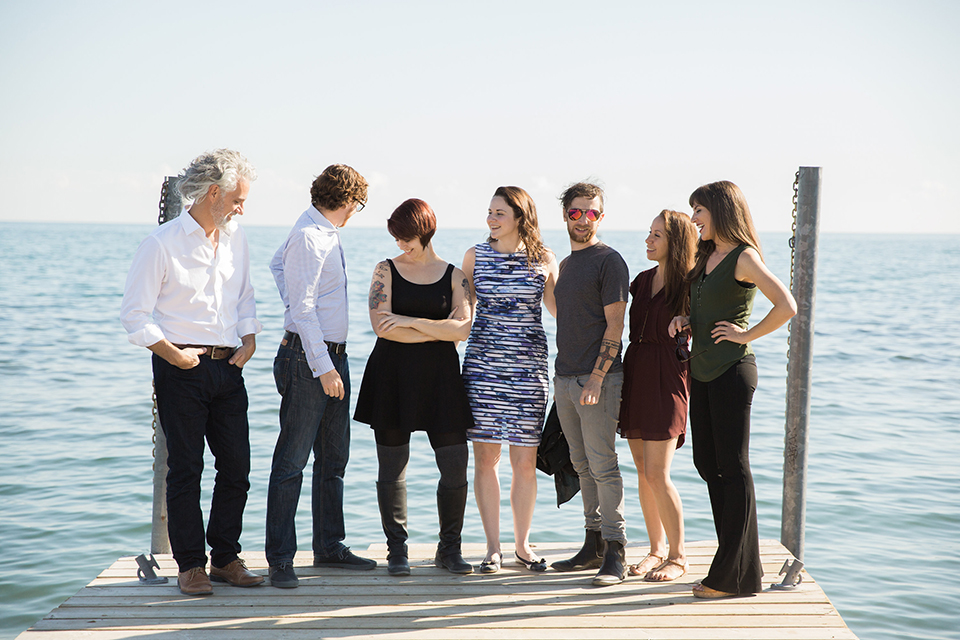If you’re responsible for your company’s employee volunteering and giving program you know it’s tough to get people to show up to events. If they do show up, it’s tough to get them to come back. Your employees are busy with work and family. What’s more, there are a lot of other options out there competing for their interests and time. So, when it comes to inviting colleagues to participate in the corporate citizenship programs what’s the motivation for them? What benefit can be gained from the corporate program compared to other volunteering activities in the community? And frankly, what’s the WIIFM?
Your employees are evaluating the value proposition of your corporate volunteering and giving program against a myriad of other options and personal commitments. If you don’t know what will motivate them to try out your program, you’re dead in the water. Participation won’t increase. Leaders won’t develop. Business benefits won’t be achieved.
So, what do you need to know about your employee decision–making process that can help you offer the right motivation at the right time?
What are the Barriers to Participating in Employee Giving and Volunteering?
Let’s start with the obvious. At all times, there is a tremendous amount of competition for the hearts, minds and time of employees. Knowing this, what are the additional friction points?
- Awareness: Despite the fact that many employees indicate they would be open to participating in these programs, the majority express a lack of awareness of available opportunities.
- New behavior: Since most people don’t volunteer as a lifestyle behavior, there is typically hesitance when agreeing to participate for the first time.
- Lack of management support: In many cases, lack of management support acts as a serious detractor and demotivator.
- Unclear purpose: Employees are almost always unable to articulate the reasons and objectives for CSR programs outside of their own assumptions.
- Unclear process: Conflicting program criteria and application processes, together with multiple technology solutions tend to create a widespread perception that signing up to volunteer or give is more trouble than it’s worth.
How Do Employees Decide to Participate?
Given the critical role of employees and the multiple barriers they face, it is no wonder that many CSR managers are frustrated with low levels of activation. Luckily, these barriers are not insurmountable. Your company’s employees come into contact with corporate giving and volunteering messages in myriad ways and from various starting points. For example, email communications, colleague invitations, the company’s technology portal, social media, United Way campaign promotions and team events. What’s needed is less emphasis on communication (although essential) and more emphasis on the employee decision-making process. Develop a journey map that outlines every touchpoint along the employee’s decision-making process. This will provide critical insights for existing messaging strategies. Here are three primary stages in the decision-making journey of employees:
1. AWARENESS
During the Awareness stage, employees hear about the opportunity to participate and determine the priority level of the opportunity compared to competing concerns and obligations. At this stage, the CSR team needs to understand:
1. In what way does the volunteering or giving opportunity appear to align with the employee’s own personal values and priorities?
2. How do employees discover more information and decide to participate or not?
3. Are there common misconceptions about the company’s CSR work among employees who do not regularly participate in volunteering and giving activities?
2. CONSIDERATION
During the Consideration stage, employees evaluate their options to meet their perceived need to participate. The CSR team should be able to answer the following questions for employees across multiple business areas and geographies:
1. What type of prosocial opportunities are people looking to be a part of and what is their motivation for doing so?
2. How do employees educate themselves on the various employee giving and volunteering opportunities?
3. How do employees evaluate the pros and cons of each opportunity?
4. How do employees decide which opportunity is right for them? What influences their decision not to participate?
3. DECISION
In the Decision stage, employees have come to a conclusion regarding the value and benefit of the volunteering or giving opportunity. At this stage, the CSR team needs to understand:
1. What criteria do employees use to evaluate the competing priorities for their time (such as work and family commitments) or other options for expressing prosocial behavior?
2. When employees explore volunteering and giving through the company, what do they like about it compared to alternatives? Do they have any concerns or unanswered questions about the program or events?
3. Who needs to be involved in the decision? For example, how often are managers and supervisors consulted on whether employees feel free to commit to participating in the company’s programs?
4. What expectations do employees have of volunteering and giving activities before deciding to commit?
Employees are Key to Lasting Success
As the theory and practice of CSR and corporate citizenship continues to expand and evolve, employee volunteering and giving provide companies with an effective strategy with which to address often negative or at best suspicious relationships that exist between business and society. This potential becomes even more profound given the backdrop of populist governments and divided societies.
The senior leaders of the private sector are making public commitments to meet the needs of all stakeholders, but employees must voluntarily choose to make that commitment a reality. The success of any corporate citizenship strategy depends on individual employees learning about the issues, taking action, building relationships, and doing the work that needs to be done. This human capital investment is key to unlocking other forms of capital required for impactful citizenship programs; financial, social, and intellectual.
We can help!
Most of the blogs we write are geared toward managers responsible for employee volunteering, workplace giving, and sustainability programs. Our intention is to help you be more successful – whether you engage us formally or not. The work you do is critical to addressing the huge social and environmental issues facing our global society. The role you play in the company you work for is key to humanity’s future.
1. Employee Activation Workshop
Are you thinking, “I need to increase year-round participation, but I have a limited budget and headcount.”?
Realized Worth’s Employee Activation Workshop can help you dramatically increase participation rates in your giving and volunteering programs:
- Prepare for the downstream challenges that come with a significant increase in participation,
- Design your program to sustain growth at scale,
- Discover the resources to support the plan, and
- do it all in just 3 days!
2. Champions Network Workshop
Are you thinking, “I want to support deeper levels of commitment with meaningful impact – at scale.”?
Realized Worth’s Champions Network Workshop is a one-week kick-starter to scale your program across a broad employee base by building a sustainable, well-equipped network of the right champions throughout your organization:
- The right people
- Met at their highest level of contribution
- With the best in class resources and support.
3. User Behaviour Diagnostic
Are you thinking, “I’m not seeing the participation on our technology platform I had hoped for, and I am not sure why.”?
The User Behaviour Diagnostic is a simple, non-intrusive assessment to
- Evaluate how your employees are interacting with your software solution,
- Identify friction points, and
- Provide simple interventions to improve the ROI of your technology solution investments.






